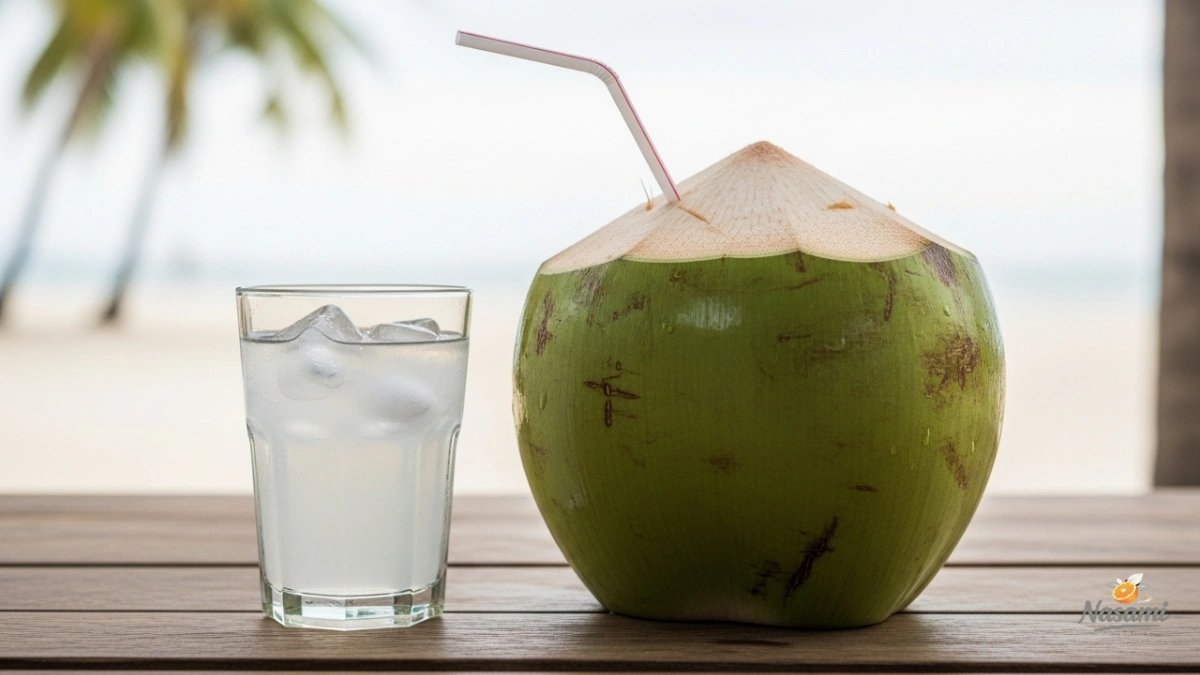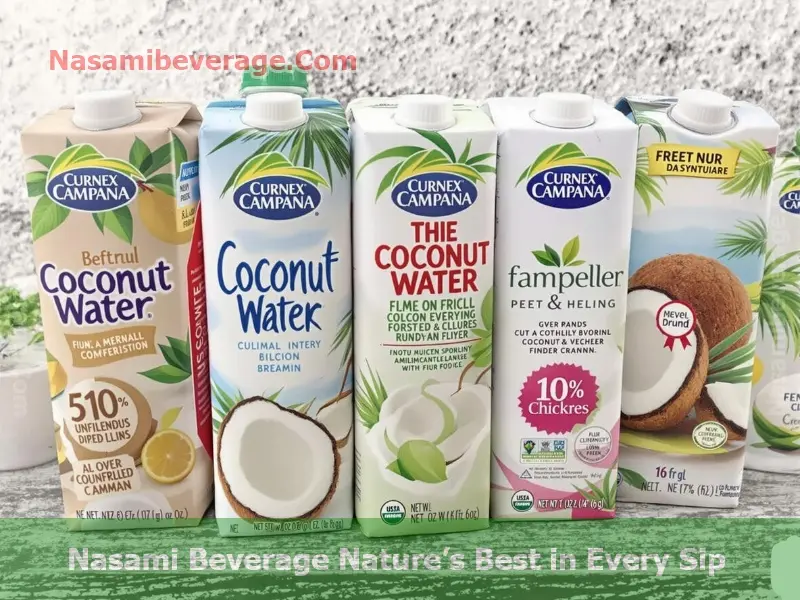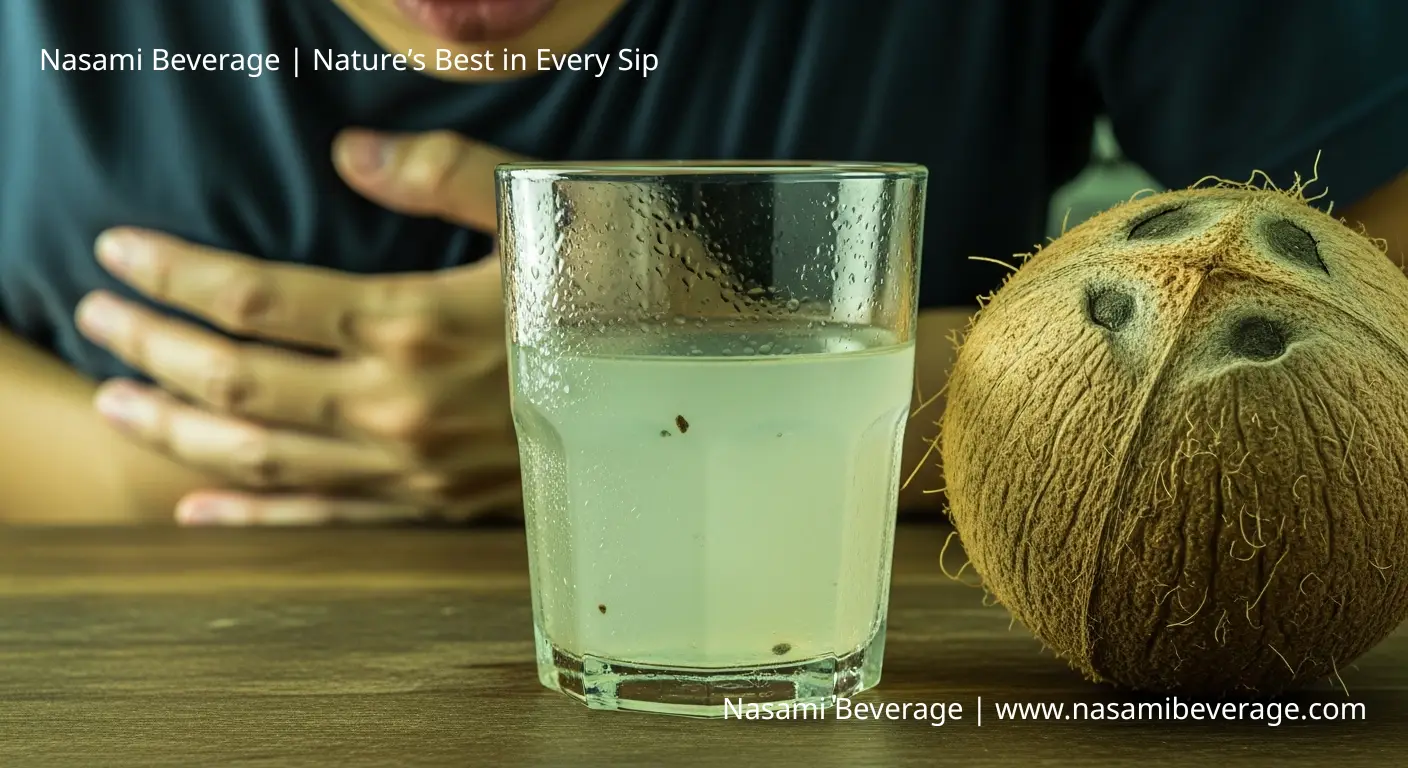Nature’s Sports Drink: The Health Benefits of Coconut Water
Often marketed as a natural alternative to sports drinks, coconut water has a nutritional profile that lends itself well to hydration and recovery. Let’s look at the science-backed benefits.
A Hydration Superstar
Staying hydrated is crucial for overall health, and coconut water is an excellent choice for rehydration. Its low-calorie and low-sugar profile make it a healthier alternative to many sugary sodas and juices [16]. After light exercise, a glass of pure coconut water can help replenish fluids effectively.
Rich in Electrolytes
One of the most touted benefits of coconut water is its high electrolyte content. It’s particularly rich in potassium, a mineral that plays a vital role in maintaining fluid balance, nerve function, and muscle contractions [4].
In fact, a single cup of coconut water can contain more potassium than a medium banana [9]. It also contains other key electrolytes like magnesium and sodium, making it a comprehensive choice for rebalancing your system.
Potential Heart Health and Blood Sugar Benefits
The high potassium content in coconut water may contribute to heart health. Potassium can help counteract the effects of sodium in the body, potentially helping to lower blood pressure in individuals with high or normal blood pressure [3]. Furthermore, some preliminary animal studies suggest it may help in managing blood sugar levels, although more research in humans is needed to confirm these effects [8].
May Help Prevent Kidney Stones
Adequate fluid intake is the best way to prevent kidney stones. Some studies suggest that coconut water may be even more beneficial than plain water. Research indicates it can help prevent crystals from sticking to the kidneys and other parts of the urinary tract, and it helps flush out citrate, potassium, and chloride, reducing the likelihood of stone formation [6].
Coconut Water: Potential Downsides and Considerations
While natural coconut water has many benefits, not all products are created equal, and it may not be suitable for everyone. Understanding the potential drawbacks is key to determining if coconut water is a healthy choice for you.
Sugar Content in Flavored Varieties
The biggest pitfall is the high amount of added sugar found in many commercial coconut water brands. Flavored versions, such as pineapple or mango, can contain as much sugar as a traditional soda, negating many of the health benefits. It is crucial to read labels and choose unsweetened, 100% coconut water products [4].
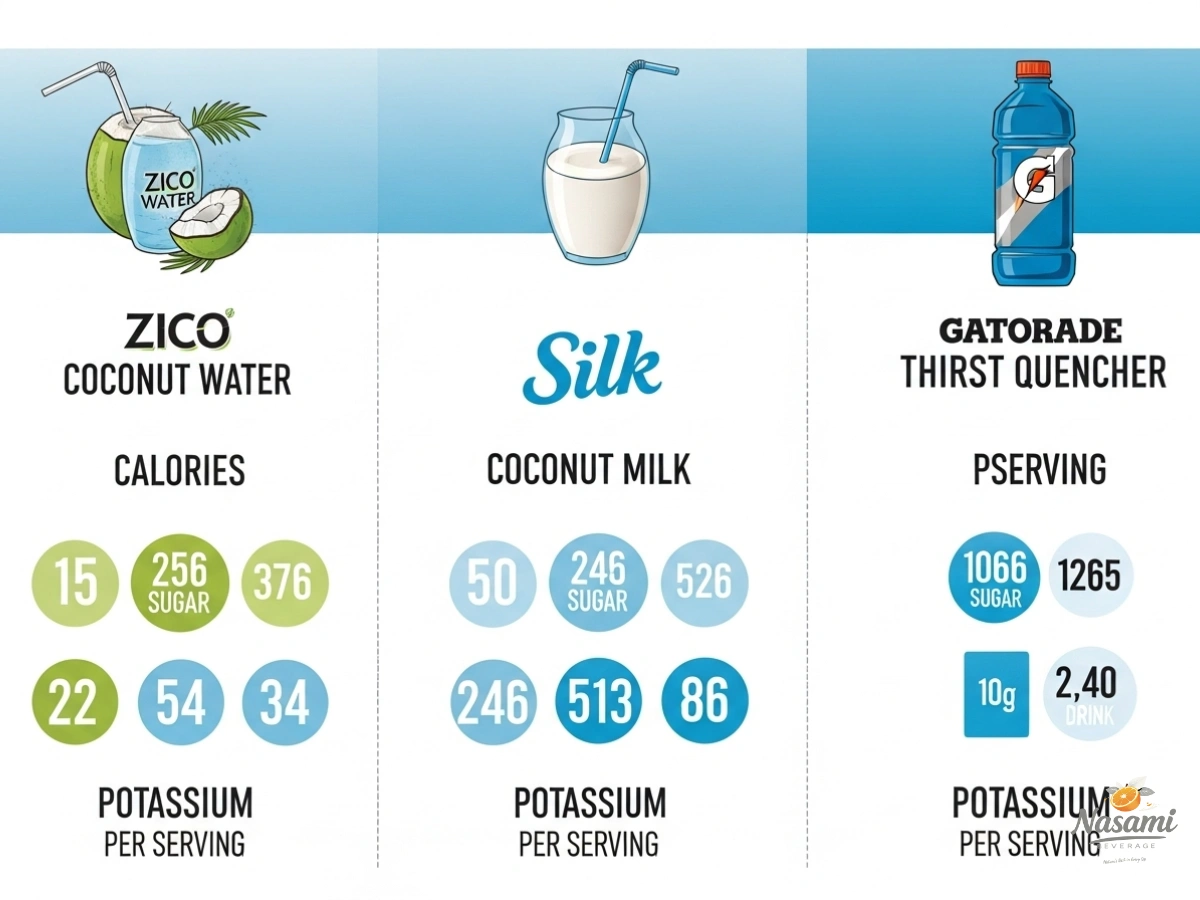
Who Should Be Cautious?
Due to its extremely high potassium content, individuals with kidney disease or impaired kidney function should exercise caution. The kidneys are responsible for filtering excess potassium from the blood, and in those with compromised function, consuming too much could lead to a dangerous condition called hyperkalemia [3, 20]. If you have any kidney-related health issues, consult your doctor before adding coconut water to your diet.
Potential for Digestive Upset
For some people, especially those with Irritable Bowel Syndrome (IBS), consuming large amounts of coconut water can lead to digestive discomfort like bloating or an upset stomach. It contains FODMAPs, a type of carbohydrate that can trigger digestive symptoms in sensitive individuals [21]. Moderation is key.
The Creamy Truth: Is Coconut Milk Healthy?
Shifting gears to its richer cousin, coconut milk offers a different set of nutritional properties. As a staple in many cuisines, its role as a healthy beverage is more complex. So, when asking if this coconut drink is healthy, the context matters.
A Nutritional Breakdown
Coconut milk is significantly higher in calories and fat than coconut water. However, a large portion of this fat comes from medium-chain triglycerides (MCTs) [7]. Unlike the long-chain fatty acids found in many other foods, MCTs are metabolized differently. They are transported directly from the gut to the liver, where they can be used as a rapid source of energy [2].
Potential Health Perks of Coconut Milk
The MCTs in coconut milk are the source of most of its potential benefits. Some studies suggest that MCTs may help increase satiety and boost metabolism, which could aid in weight management [12]. Additionally, the primary MCT in coconut is lauric acid, which has been studied for its potential antimicrobial and anti-inflammatory properties. When considering whether is coconut water healthy compared to coconut milk, it’s clear they serve different purposes-one for hydration and the other for energy and culinary use.

A Versatile Dairy-Free Alternative
For individuals with lactose intolerance or those following a vegan diet, coconut milk is an excellent plant-based alternative to cow’s milk. It adds a rich, creamy texture to coffee, smoothies, soups, and curries, making it a versatile ingredient in the kitchen.
Coconut Milk: What to Watch Out For
Despite its benefits, coconut milk has several nutritional aspects that warrant consideration. It’s a high-calorie food that should be consumed in moderation as part of a balanced diet.
The Saturated Fat Debate
Coconut milk is high in saturated fat, a nutrient that has been historically linked to high cholesterol and heart disease. However, the debate continues, as some research suggests that the MCTs in coconut may not have the same negative impact as the saturated fats found in animal products [2, 10]. Still, major health organizations recommend limiting saturated fat intake, so moderation is crucial.
Canned vs. Carton: Making the Right Choice
It’s important to distinguish between the two main types of coconut milk available. Canned coconut milk is thick, creamy, and high in fat, primarily intended for cooking. The beverage version sold in cartons is diluted with water, has a much lower fat and calorie content, and is often fortified with vitamins like D and B12. When choosing a beverage, the carton version is the more appropriate option. Always check for added sugars and additives like carrageenan or guar gum.
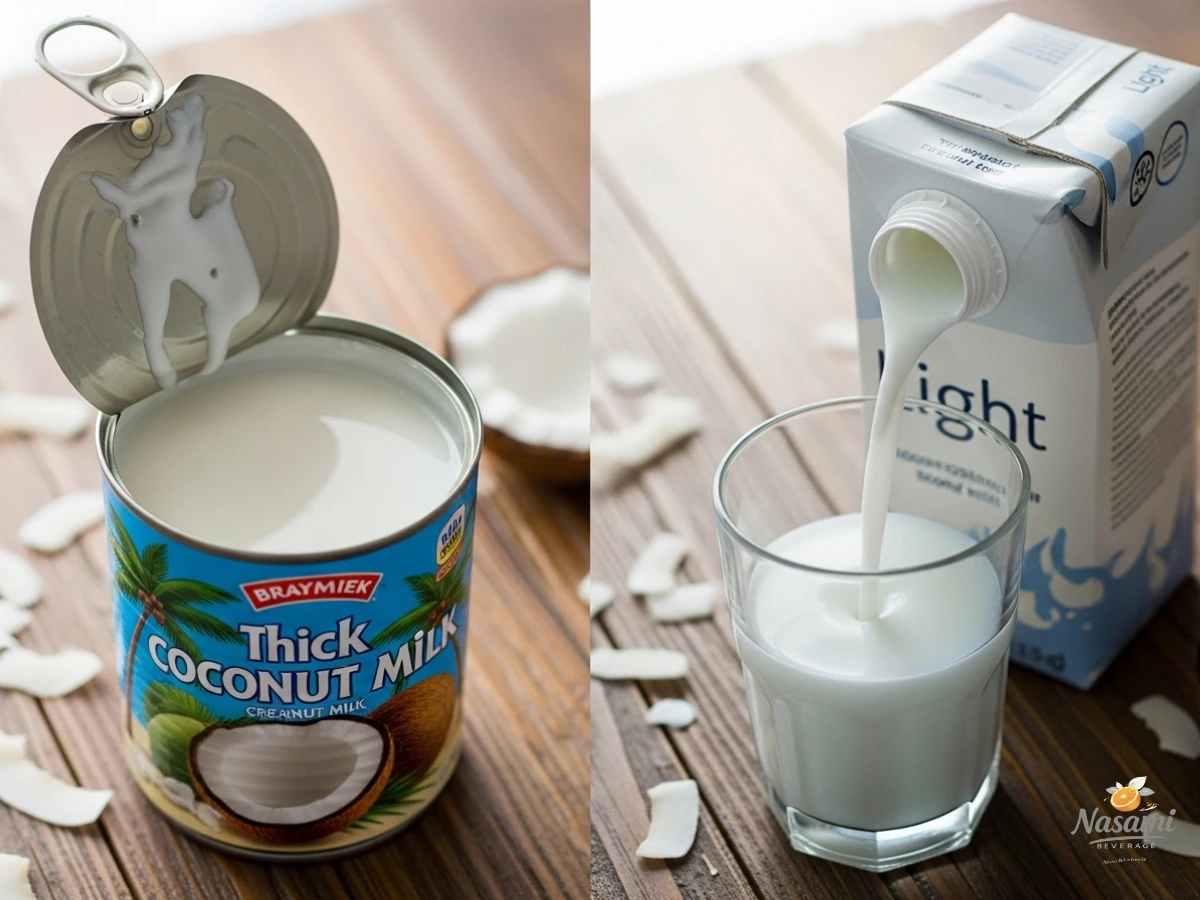
Low in Protein and Other Nutrients
Unlike dairy milk or soy milk, coconut milk is very low in protein. It’s also not a natural source of calcium unless it has been fortified. If you are using it as a primary milk alternative, ensure you are getting these essential nutrients from other sources in your diet [7].
The Verdict: Are Coconut Drinks a Healthy Choice?
So, is coconut drink healthy? The answer is a qualified yes. Both coconut water and coconut milk can be part of a healthy diet, provided you make informed choices. Coconut water is a fantastic, low-sugar option for natural hydration and electrolyte replenishment. Coconut milk, consumed in moderation, can be a beneficial dairy-free alternative rich in energizing MCTs.
The key is to always read the label. Opt for unsweetened varieties, be mindful of portion sizes (especially with coconut milk), and integrate these drinks into an overall balanced and varied diet. For more insights into healthy hydration, discover more healthy drinks on our blog. It’s also important to ask are coconut water good for you on an individual level, considering your own health needs and dietary restrictions.
Frequently Asked Questions (FAQs)
Is it okay to drink coconut water every day?
For most people, drinking a glass or two of unsweetened coconut water daily is generally safe and can be a great way to stay hydrated. However, individuals with kidney disease should consult their doctor due to its high potassium content [1].
Which is healthier, coconut water or coconut milk?
They are healthy in different ways. Coconut water is superior for low-calorie hydration and electrolytes. Coconut milk is much higher in calories and fat (including beneficial MCTs) and serves better as a creamy, dairy-free base for recipes or beverages in moderation [17].
Can coconut water help you lose weight?
Coconut water can indirectly support weight management by serving as a lower-calorie, lower-sugar replacement for sodas, juices, and sweetened sports drinks. However, there is no direct evidence that it actively causes weight loss [16].
Does coconut milk raise cholesterol?
This is a complex topic. While coconut milk is high in saturated fat, some studies on its primary fat, lauric acid, suggest it may increase ‘good’ HDL cholesterol along with ‘bad’ LDL cholesterol. The overall effect on heart disease risk is still being researched, and moderation is recommended [14].
